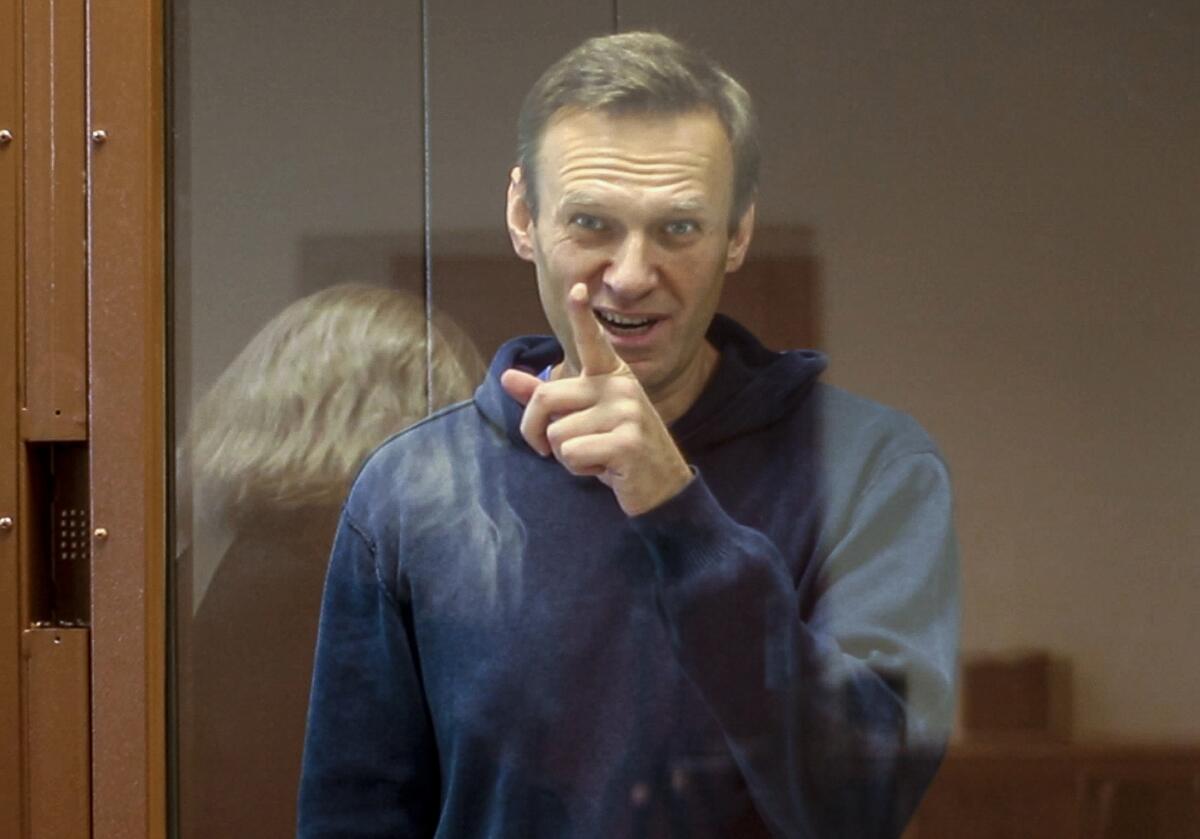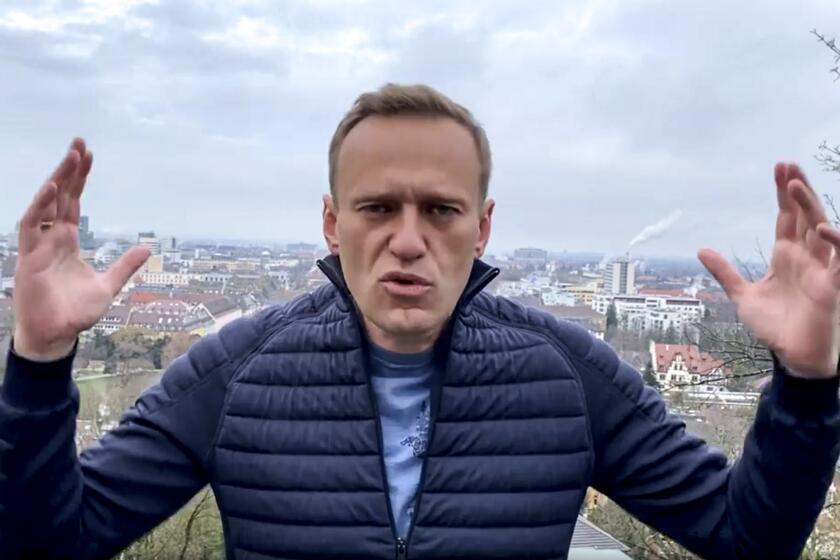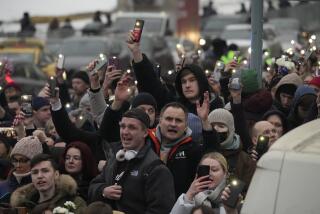Russian opposition leader Alexei Navalny to end prison hunger strike

- Share via
MOSCOW — Imprisoned opposition leader Alexei Navalny says he is ending his hunger strike after getting medical attention and being warned by his doctors that continuing it would put his life at risk.
In an Instagram post on Friday afternoon, the 24th day of his hunger strike, Navalny said he will continue to demand a visit from his doctor to address a loss of sensation in his legs and arms — the main demand the politician announced when he launched his hunger strike.
But he said he would stop the strike after having been examined by non-prison doctors, something he called “a huge progress.”
“Thanks to the huge support of good people across the country and around the world, we have made huge progress,” Navalny said in his message. “Two months ago, my requests for medical help were prompting smirks. I wasn’t given any medications. ... Thanks to you, now I have been examined by a concilium of civilian doctors twice.”
Navalny said he would start “coming out of the hunger strike” on Friday and the process of ending it will take 24 days.
The 44-year-old politician, who was arrested earlier this year and is serving a 2½-year sentence, began the hunger strike on March 31 to protest prison authorities’ refusal to let his doctors visit after he developed severe back pain and numbness in his legs.
If Russia is ‘painfully killing’ jailed opposition figure Navalny, what’s the Kremlin’s long game?
Officials insisted Navalny was getting all the medical help he needed, but Navalny said he received effectively no treatment.
On Wednesday night, another round of mass protests demanding his freedom swept across Russia. A top aide said Wednesday night’s protests seemed to have brought a compromise from Russian authorities on getting Navalny the medical help he had demanded when launching the hunger strike.
Navalny, who is President Vladimir Putin’s most well-known critic, was arrested in January upon his return from Germany, where he had spent five months recovering from a nerve agent poisoning he blames on the Kremlin — accusations that Russian officials reject.
More to Read
Sign up for Essential California
The most important California stories and recommendations in your inbox every morning.
You may occasionally receive promotional content from the Los Angeles Times.











